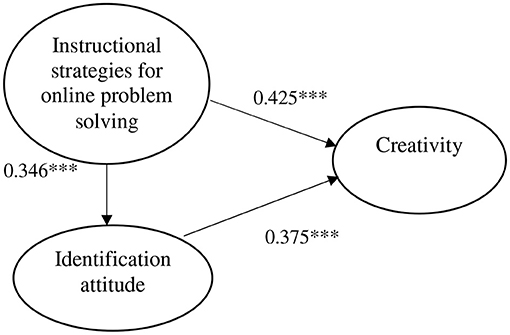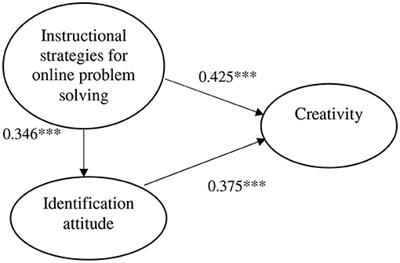Strategies for Online Education: Collaborative Work & Discussions
Further exploration will touch upon special education and interprofessional education, showcasing the breadth and diversity of collaborative applications across various educational spheres.

In the realm of education, collaboration stands as a cornerstone of progress. So, what is one benefit of working collaboratively on a team? We'll delve into the nuances of collaborative learning, its unique definition in an educational context, and the methods that best promote such endeavors.
Collaboration in Education: Its Importance and Benefits
Collaboration in education is not just a buzzword; it's a transformative approach that offers significant advantages to students and educators. One might wonder what is collaborative learning and why is it important in the broader context of education?
Here, we'll delve into the specifics of why collaboration is crucial and explore tangible examples of how it can be harnessed for optimal learning outcomes:
- Improved Problem-Solving Skills: Collaborative problem-solving involves students analyzing complex issues, brainstorming solutions, and implementing them collectively. This embodies the very definition in education of cooperative exploration.


- Enhanced Communication Skills: Collaboration in education enhances communication as students engage in discussions, express ideas clearly, and actively listen to their peers.

- Increased Engagement: Collaborative learning keeps students engaged and motivated as they actively participate in discussions and activities, highlighting the benefits of interactive exploration.
We suggest perusing our detailed article for precise guidance on enhancing engagement in your virtual classroom.

- Cultivation of Empathy: Collaborative projects require students to manage their time effectively, ensuring that tasks are completed on schedule.
- Effective Time Management: What is notable about collaborative learning is that it encourages empathy as students work together, gaining insights into each other's perspectives and experiences.
Types of Collaborations and Discussions in Online Education
In online education, the dynamic nature of collaboration in education and discussions plays a pivotal role in shaping the learning experience. As technology continues to bridge geographical gaps, educators and students alike are discovering various types of collaboration and discussion methods that enhance engagement, critical thinking, and knowledge retention.
Why is important such focus on collaboration? In this exploration, we will delve into different types of collaborations and discussions, their theoretical foundations, advantages, and the value they bring to both students and teachers in the context of online education.
Synchronous Discussions
What is synchronous discussion? It involves real-time interaction among students and teachers. Inspired by traditional classroom dynamics, this approach facilitates instant communication, mirroring collaboration in education. The importance of synchronous discussions lies in the immediate feedback and engagement they offer, fostering a sense of presence and community among participants.
For students, this collaboration in education holds substantial value, enhancing active participation, enabling instant clarification of doubts, and promoting a sense of belonging within the virtual classroom.
Moreover, teachers benefit from what does collaborative mean in this context? They facilitate spontaneous discussions, gauge student understanding in real-time, and build stronger teacher-student connections.

Asynchronous Discussions
Asynchronous discussions, another significant facet of collaboration in education, introduce a time-delayed dimension to interactions. Why is important flexibility in online learning? This approach accommodates participants' schedules and time zones, offering flexibility in the online learning environment.
Clear guidelines and expectations, along with instructor involvement, are crucial for effective discussions, ensuring students engage meaningfully and avoid misunderstandings.
Paul Moss, The University of Adelaide
For students, asynchronous discussions in collaborative activities encourage thoughtful responses, provide ample time for reflection, and accommodate individual learning paces.
Educators, understanding what does collaborative mean in this context, value this method as it allows for in-depth discussions, reduces scheduling conflicts, and fosters higher-order thinking skills.
Collaborative Projects
What is cooperative learning in the classroom setting? Collaborative projects involve students working together to achieve a common goal, emphasizing teamwork and shared responsibility. Which of the following describes collaboration in these projects? Students work collectively toward a common goal, emphasizing shared responsibility and cooperation.

For students, the benefits of this collaboration in education include enhanced critical thinking, promoted cooperation, and preparation for real-world teamwork, often conducted remotely.
Teachers also derive value from what is cooperative learning in the classroom and online. Collaborative projects facilitate the assessment of teamwork skills, provide opportunities for diverse learning experiences, and align with project-based learning strategies.
Peer Review and Feedback
Peer review and feedback mechanisms, vital in special education and mainstream settings, involve students actively providing constructive input on each other's work. This collaboration in education promotes a culture of constructive criticism and shared learning experiences.
Peer feedback can enhance students' academic self-concept in higher education, indicating its role in boosting confidence and self-perception in an academic context.
Paul Moss, The University of Adelaide
For students, the benefits of participating in peer review and feedback are manifold. It enhances their abilities to evaluate and critique academic work, exposes them to diverse perspectives, and encourages self-reflection.
Educators also benefit significantly from this method in interprofessional education settings. They witness the enhancement of the quality of student work thanks to peer assessments and feedback.
Expert Guest Discussions
Why is important to incorporate expert insights in online courses? Online education often incorporates expert guest discussions to provide students with valuable insights and real-world perspectives. In this approach, subject-matter experts are invited to engage with students, sharing their knowledge and experiences in interprofessional education settings.
For students, the benefits of participating in expert guest discussions mean gaining practical knowledge, building professional connections, and applying theoretical concepts to real-world scenarios.
Educators, understanding the importance of this type of collaboration in education, find value in expert guest discussions. They enhance the credibility of the course, offering fresh perspectives on course topics, and ensuring that course content remains current and relevant.
